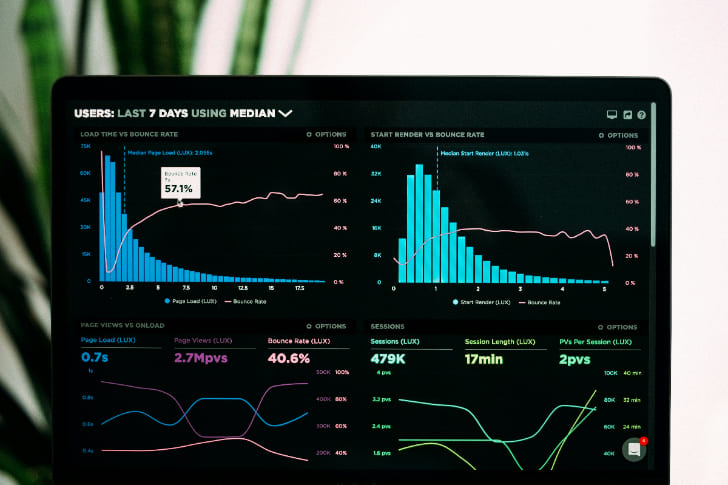Introduction: Turning Your Home Into Cash
For many homeowners, the house isn’t just a place to live—it’s also a powerful financial asset. Over time, as you pay down your mortgage and as property values rise, you build equity. That equity can be tapped into through a home equity loan, often referred to as a “second mortgage.”
Whether you’re looking to remodel your kitchen, consolidate debt, pay for college, or cover unexpected expenses, a home equity loan can provide access to large sums of money at relatively low interest rates.
But before signing up, it’s crucial to understand both the opportunities and the risks.

This article will explore the 10 most important things you must know about home equity loans to help you decide if it’s the right financial move for you.
1️⃣ What Is a Home Equity Loan?
A home equity loan allows you to borrow against the equity you’ve built in your home. Equity is the difference between your home’s current market value and the amount you still owe on your mortgage.
👉 Example:
- Current home value: $300,000
- Mortgage balance: $200,000
- Equity: $100,000
If a lender allows you to borrow up to 80% of your equity, you could get a loan of around $80,000.
It works like a traditional loan: you receive a lump sum of money upfront and repay it in fixed monthly installments over a set term (usually 5–30 years).
2️⃣ Home Equity Loan vs. HELOC
Many people confuse home equity loans with home equity lines of credit (HELOCs). They are similar but have key differences:
- Home Equity Loan:
- Lump sum upfront.
- Fixed interest rate.
- Fixed monthly payments.
- Good for one-time expenses.
- HELOC (Home Equity Line of Credit):
- Works like a credit card with a revolving balance.
- Variable interest rates.
- Flexible borrowing as needed.
- Good for ongoing expenses like renovations.
👉 Rule of Thumb: If you need a one-time, large amount, choose a home equity loan. If you want flexibility, go for a HELOC.
3️⃣ How Much Can You Borrow?
Most lenders allow you to borrow up to 80–85% of your home’s value, minus your remaining mortgage balance.
👉 Formula:
(Home Value × 80%) – Mortgage Balance = Maximum Loan
Example:
- Home Value: $400,000
- Mortgage Balance: $250,000
- (400,000 × 80%) – 250,000 = $70,000 available.
Keep in mind: lenders also factor in credit score, income, and debt-to-income ratio (DTI) when determining how much you can borrow.
4️⃣ Interest Rates Are Lower—But Risks Are Higher
One of the biggest advantages of home equity loans is their low interest rates compared to credit cards or personal loans. Because the loan is secured by your home, lenders take less risk and offer better terms.
👉 Example:
- Average credit card APR: 20%+
- Personal loan APR: 8–15%
- Home equity loan APR: 5–8%
But there’s a catch: if you default, you could lose your home. That’s the tradeoff for the lower rate.
5️⃣ They Come With Fees and Closing Costs
Just like your original mortgage, home equity loans often include fees and closing costs, such as:
- Origination fees.
- Appraisal fees.
- Title search and insurance.
- Attorney fees.
- Document preparation.
These typically range from 2% to 5% of the loan amount.
👉 Example: For a $50,000 loan, you may pay $1,000–$2,500 in fees.
Always factor in these costs when calculating whether a home equity loan is worth it.
6️⃣ Loan Terms Can Vary Widely
Home equity loans generally have repayment terms ranging from 5 to 30 years.
- Short-term (5–10 years): Higher monthly payments but less interest paid overall.
- Long-term (15–30 years): Lower monthly payments but more interest in total.
👉 Example:
- $50,000 loan at 7% over 10 years = ~$580/month, $19,600 total interest.
- $50,000 loan at 7% over 20 years = ~$387/month, $42,880 total interest.
The trade-off is between affordability now vs. savings long-term.
7️⃣ Uses: What You Can (and Should) Use It For
A home equity loan can be used for nearly anything, but some uses make more financial sense than others.
Smart Uses:
- Home renovations (may increase property value).
- Debt consolidation (replace high-interest debt with lower interest).
- College tuition (if loan terms are better than student loans).
- Major life expenses (medical bills, weddings).
Risky Uses:
- Vacations or luxury items.
- Investing in volatile assets.
- Everyday expenses (unsustainable in the long term).
👉 Best Practice: Use home equity loans for expenses that either increase your net worth or save you money.
8️⃣ Credit Score and Income Matter
While your home is the collateral, lenders still look at your credit score and income to determine approval and interest rates.
- Credit Score: Higher scores = better rates. Most lenders require at least 620, though 700+ is ideal.
- Debt-to-Income Ratio (DTI): Typically must be below 43%.
- Income Verification: Steady, reliable income increases approval chances.
👉 If your credit isn’t strong, you may still qualify—but expect higher interest rates.
9️⃣ Tax Deductibility Depends on Usage
Once upon a time, home equity loan interest was always tax deductible. That changed with the Tax Cuts and Jobs Act (2017).
Now, interest is only deductible if the loan is used to “buy, build, or substantially improve” your home.
👉 Example:
- ✅ Deductible: Using loan to remodel your kitchen.
- ❌ Not Deductible: Using loan to pay off credit cards.
Always consult a tax advisor for your specific situation.
🔟 The Risks: You Could Lose Your Home
While home equity loans offer benefits, they come with serious risks:
- Foreclosure Risk: Defaulting means the lender can seize your home.
- Overborrowing: Easy access to large sums can lead to financial trouble.
- Falling Property Values: If home prices drop, you could end up “underwater” (owing more than your home is worth).
- Double Mortgage Burden: You’ll have to pay both your primary mortgage and the home equity loan each month.
👉 Bottom Line: A home equity loan should only be taken out if you’re confident in your ability to repay it.
📊 Table 1: Pros and Cons of Home Equity Loans
| Pros | Cons |
|---|---|
| Lower interest rates than credit cards | Risk of foreclosure if you default |
| Fixed rates and predictable payments | Fees and closing costs can be high |
| Large sums available ($10k–$250k) | Uses up home equity, reducing safety net |
| Can improve home value with renovations | Long repayment terms = more interest |
| Potential tax benefits (for home use) | Requires good credit and income |
📊 Table 2: Home Equity Loan vs HELOC
| Feature | Home Equity Loan | HELOC |
|---|---|---|
| Disbursement | Lump sum upfront | Draw as needed |
| Interest Rate | Fixed | Variable (usually) |
| Repayment | Fixed monthly installments | Flexible (during draw period) |
| Best For | One-time large expenses | Ongoing/uncertain expenses |
| Predictability | High | Low (payments can fluctuate) |
🌟 Best Practices for Using a Home Equity Loan
- Calculate your true equity before applying.
- Shop multiple lenders to compare rates and fees.
- Borrow only what you need, not the max.
- Use funds for value-building purposes like renovations or debt consolidation.
- Avoid variable rate products if you need predictability.
- Consider your long-term housing plans (if moving soon, fees may outweigh benefits).
- Don’t rely on home equity as a financial safety net unless absolutely necessary.
- Check for prepayment penalties in loan terms.
- Consult a tax advisor before making assumptions about deductions.
- Have a repayment plan to avoid foreclosure risk.
🚀 Real-World Example
Sarah bought her home 10 years ago for $200,000. Today, it’s worth $350,000, and her mortgage balance is $150,000.
Her equity = $200,000.
She takes out a $50,000 home equity loan at 6% over 15 years to remodel her outdated kitchen and bathrooms. Her new monthly payment is ~$422.
- The renovations increase her home’s value by ~$70,000.
- She benefits from potential tax deductions since the loan improved her home.
- Because she used the loan strategically, she not only enjoyed a more functional space but also boosted her property’s resale value.
🏁 Conclusion: Is a Home Equity Loan Right for You?
A home equity loan can be a smart financial move if:
- You need a large, one-time sum of money.
- You have good credit and stable income.
- You plan to use the funds for home improvements or debt consolidation.
But it’s not for everyone. If you struggle with budgeting, are uncertain about income stability, or plan to move soon, a home equity loan could put your home and finances at risk.
At the end of the day, a home equity loan turns your house into collateral. Handle it responsibly, and it can open doors to financial opportunity. Handle it recklessly, and it could cost you your most valuable asset—your home.









Leave a Reply